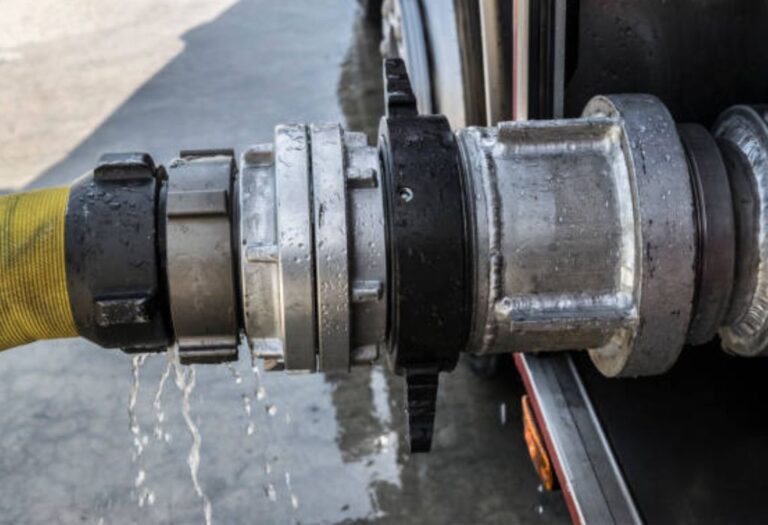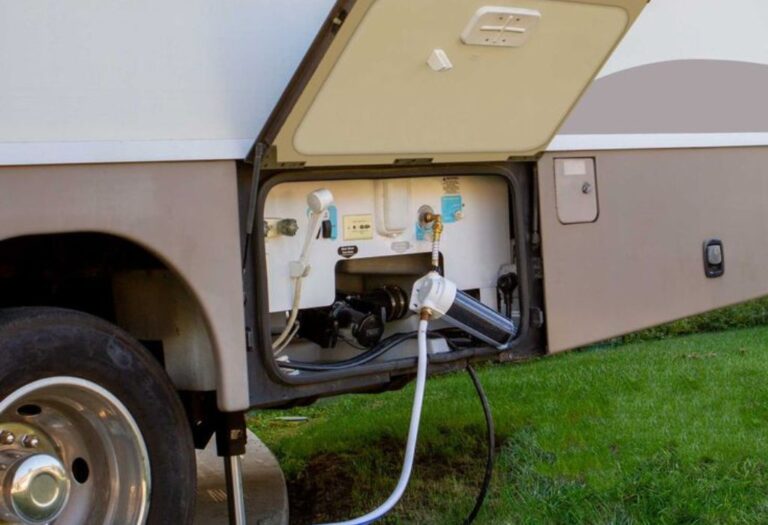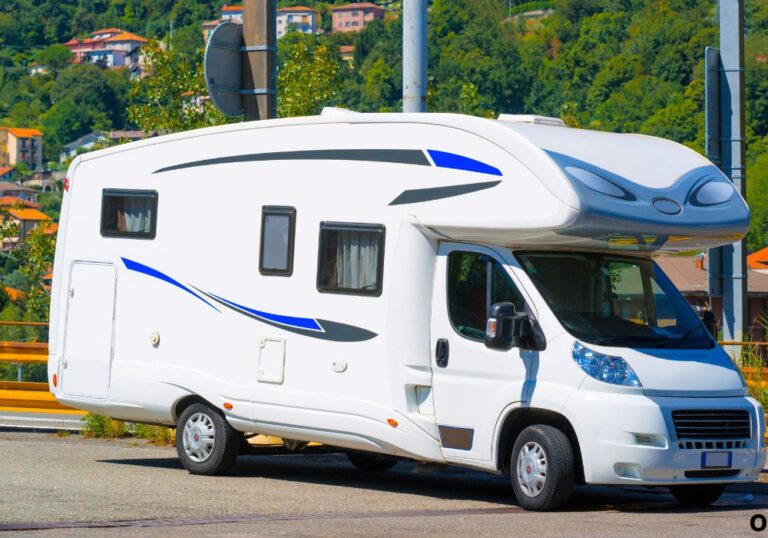Are RV Batteries 12 Volt or 6 Volt? Key Differences
RV batteries are the lifeline of every motorhome, powering lights, appliances, and essential systems on the road.
Many new RV owners often ask the same question: are RV batteries 12 volt or 6 volt?
At first, it seems like a simple detail, but the answer can change how your RV performs.
Studies show that over 80% of RV owners replace or upgrade their batteries within the first five years of use source.
The choice between 12 volt and 6 volt batteries impacts lifespan, charging efficiency, and how long you can camp off-grid.
Some campers prefer the simplicity of a single 12 volt battery, while others swear by the durability of 6 volt options.
Understanding the difference helps prevent costly mistakes and ensures reliable power for every trip.
This guide will explain whether RV batteries are 12 volt, how they compare to 6 volt, and which type is best for your travel style.
The Role of RV Batteries
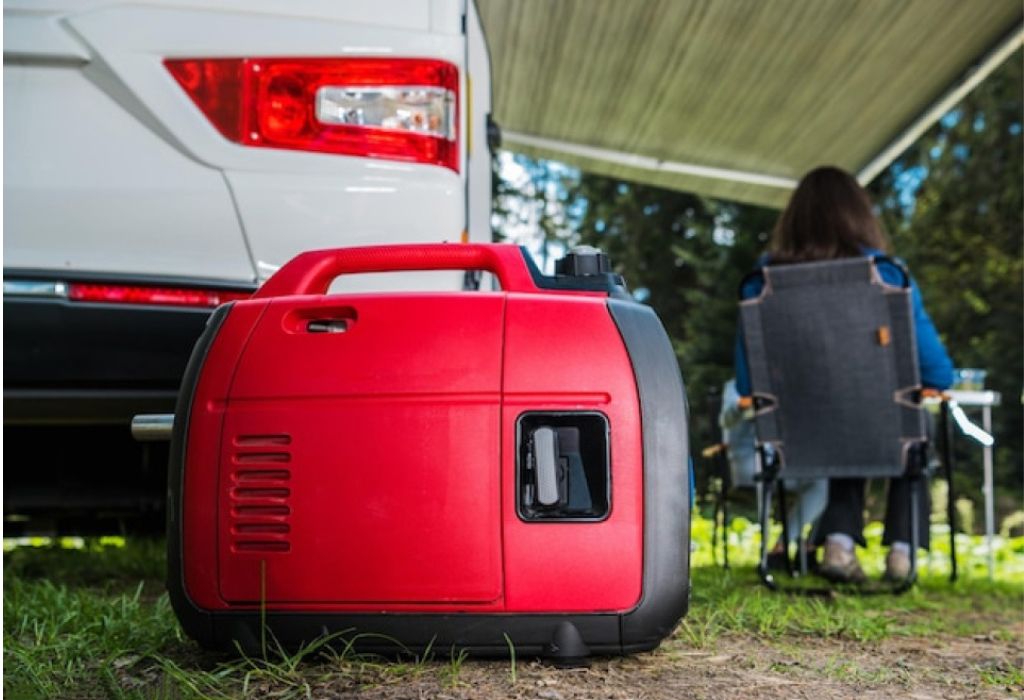
An RV battery is more than just a storage box; it is the heart of the electrical system. It powers lights, water pumps, fans, and other essentials when shore power is not available.
There are two categories of RV batteries: chassis batteries and house batteries. The chassis battery starts the engine, while the house battery runs the living area systems.
House batteries are usually deep-cycle designs that deliver steady power over long periods. Unlike car batteries, they can discharge deeply without being damaged immediately.
Voltage matters because most RV appliances are designed around 12 volt systems. This standard makes it possible for owners to use a wide range of devices safely.
Are RVs fully powered by batteries?
No, many also rely on shore power or generators.
What is the difference between chassis and house batteries?
Chassis batteries start the engine, house batteries power the living space.
Why are deep-cycle batteries used in RVs?
They can be discharged and recharged many times.
Do all RV appliances run on 12 volt?
Most lights, pumps, and fans do, but larger appliances need AC power.
Are RV Batteries 12 Volt? The Straight Answer
The majority of RV batteries are indeed 12 volt, making them compatible with most factory systems. This standardization allows manufacturers to design RVs with consistent wiring and components.
However, many experienced RV owners prefer 6 volt batteries for their durability. When wired in pairs, they create the same 12 volt output required by the RV.
A 12 volt battery is simpler because it works alone and is easy to replace. It is also more widely available in auto stores and RV shops.
A 6 volt setup requires two batteries but provides stronger cycles and often lasts longer. This makes it attractive for people who camp off-grid frequently.
Are all RV batteries 12 volt?
Most are, but 6 volt batteries are also popular.
Do motorhomes use 6 volt batteries?
Yes, many large rigs use pairs of 6 volt batteries.
Can I mix 6 volt and 12 volt batteries?
No, mixing them can damage your electrical system.
Why are 6 volt batteries still used?
They last longer and handle deeper discharges.
RV Battery Types Beyond Voltage
Not all RV batteries are the same, even if they share the same voltage. The technology inside the battery influences performance, maintenance, and cost.
Flooded lead-acid batteries are the most traditional option. They are affordable but require regular maintenance, including water level checks.
AGM batteries are sealed lead-acid designs that reduce maintenance. They resist vibration, making them useful for RVs that travel on rough roads.
Lithium-ion batteries are the newest and most advanced type. They are lightweight, charge quickly, and can last up to 10 years, but they cost significantly more.
What is an AGM battery?
It is a sealed lead-acid battery with less maintenance.
Are lithium batteries always 12 volt?
Yes, but some systems use higher voltages.
Why are flooded batteries still used?
They are cheap and widely available.
Which RV battery type lasts the longest?
Lithium-ion batteries have the longest lifespan.
12 Volt vs 6 Volt RV Batteries: In-Depth Comparison
A 12 volt battery is widely available and requires only one unit to function. It is often cheaper and easier to install.
A 6 volt battery must be paired in series to reach the 12 volt system standard. This adds complexity but improves durability and depth of discharge.
When it comes to lifespan, 6 volt batteries usually last longer. They are built with thicker plates that handle deep discharges better.
In terms of cost, 12 volt batteries are cheaper upfront, but 6 volt pairs often provide better long-term value. The choice depends on your camping style and power demands.
Which lasts longer, 6v or 12v?
6 volt batteries usually last longer.
Which is cheaper to buy?
12 volt batteries are less expensive initially.
Which is better for solar systems?
6 volt batteries often perform better in off-grid setups.
Which charges faster?
12 volt batteries usually recharge more quickly.
How to Choose the Right Voltage for Your RV

Choosing the right battery depends on your RV size and usage. Smaller trailers often use a single 12 volt battery because of limited space.
Mid-size travel trailers sometimes use two 12 volt batteries in parallel. This provides longer usage time without needing to recharge frequently.
Larger motorhomes often use pairs of 6 volt batteries. This setup supports heavy energy demands and longer off-grid stays.
Full-time RVers usually benefit from 6 volt setups or lithium upgrades. Weekend campers with hookups may find 12 volt batteries more practical.
Do I need two 6v or one 12v battery?
Two 6v batteries give more durability, one 12v is simpler.
Which is best for small trailers?
A 12v battery is usually the best choice.
Which is best for large RVs?
Pairs of 6v batteries handle higher loads better.
Can I upgrade later?
Yes, many RVers start with 12v and move to 6v.
How to Connect RV Batteries: Series vs Parallel
Series wiring is used when connecting two 6 volt batteries. It doubles the voltage to meet the 12 volt requirement.
Parallel wiring is used when connecting two 12 volt batteries. It keeps the voltage at 12 but doubles the capacity.
Choosing between series and parallel depends on the type of batteries you use. Series connections are for 6 volt setups, while parallel connections are for 12 volt setups.
Mistakes in wiring can damage your system or reduce performance. Always double-check connections and consult your RV manual.
What happens if I wire 12v batteries in series?
You get 24 volts, which can damage most RV systems.
What happens if I wire 6v batteries in parallel?
You get only 6 volts, which is not enough for an RV.
Which is safer, series or parallel?
Both are safe when done correctly.
Can I wire lithium batteries the same way?
Yes, but follow manufacturer instructions carefully.
Maintenance and Safety Tips
Proper maintenance keeps RV batteries reliable and safe. Regular care also extends their lifespan.
Check water levels in flooded batteries every month. Keep terminals clean and free of corrosion.
Avoid overcharging or fully discharging your batteries. A smart charger helps maintain proper voltage levels.
Always handle batteries with care and wear protection when working with acid-based types. Lithium batteries require less attention but should still be checked regularly.
How often should I check my batteries?
At least once a month during use.
Can I leave RV batteries plugged in?
Yes, if using a smart charger.
Do lithium batteries need maintenance?
Very little, but monitoring is still wise.
How long do RV batteries last?
Most last 3–5 years, lithium can last 10 years.
Common Mistakes RV Owners Make with Batteries
One mistake is draining batteries below 50 percent regularly. This shortens lifespan significantly.
Another mistake is mixing old and new batteries. Doing so reduces performance and can damage the system.
Incorrect wiring also causes major problems. Even one wrong connection can result in reduced efficiency or system failure.
Many owners also forget about batteries during off-season storage. Lack of preparation leads to sulfation and permanent damage.
Why should I not mix old and new batteries?
It reduces efficiency and causes imbalance.
What happens if I over-discharge my batteries?
They lose capacity and die faster.
Is incorrect wiring dangerous?
Yes, it can damage appliances or the system.
Should I disconnect batteries during storage?
Yes, it prevents unnecessary drain.
Future Trends in RV Batteries
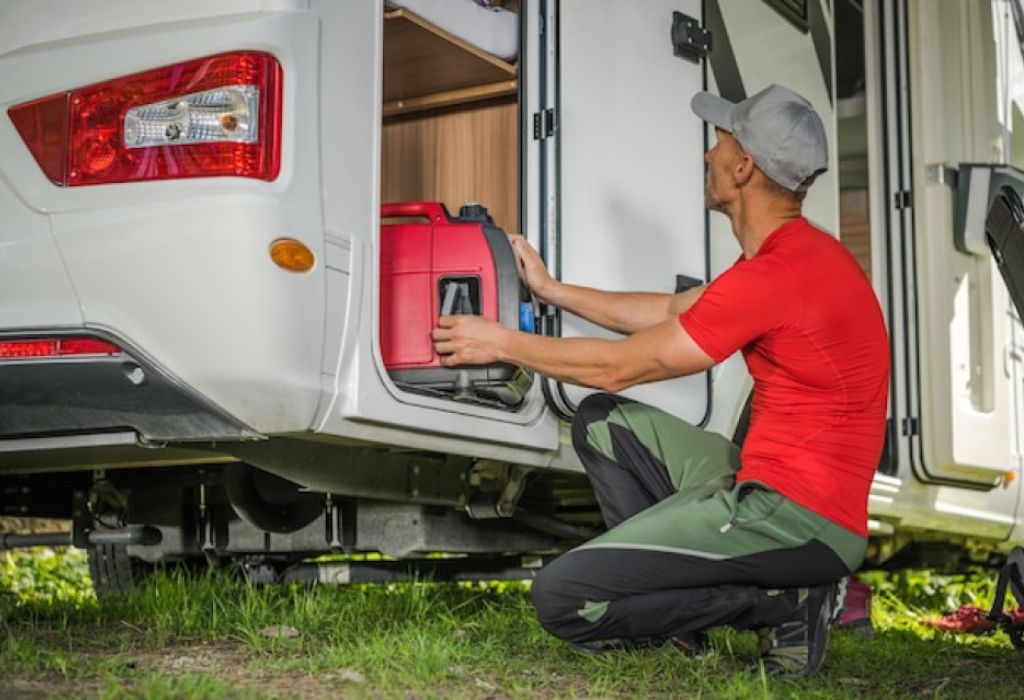
Lithium batteries are becoming the future of RV power. They offer long life, fast charging, and reduced weight.
Some larger RVs are moving toward 24 volt or even 48 volt systems. These higher voltages improve efficiency for big rigs.
Solar integration is also driving new battery technology. Many modern RVers combine lithium batteries with rooftop panels.
Smart monitoring systems are now common. These allow owners to track performance on smartphones or dashboards.
Are lithium batteries worth the cost?
Yes, for long-term use and efficiency.
Will RVs move away from 12 volt?
Large rigs may, but most RVs will remain 12 volt.
Can solar replace generators in RVs?
Yes, with strong battery banks and panels.
Are smart battery systems common now?
Yes, they are becoming standard in new RVs.
Conclusion
RV batteries are essential for powering lights, appliances, and comfort systems on the road. The majority are 12 volt, but 6 volt batteries also play a key role.
The choice between 12 volt and 6 volt depends on RV size, camping style, and budget. Both have strengths and weaknesses that suit different needs.
Beyond voltage, RVers can also choose between lead-acid, AGM, and lithium. Each has unique advantages for performance and maintenance.
By understanding battery types, avoiding common mistakes, and planning for future upgrades, RV owners can enjoy reliable power and stress-free adventures.
I’m David R. Coleman, the founder, lead writer, and lifelong tool enthusiast behind GarageToolPro.com. With years of experience in automotive repair, woodworking, and home DIY projects, I created this platform to share practical tips, detailed tool reviews, and step-by-step guides that help mechanics, hobbyists, and homeowners get the job done right the first time.

